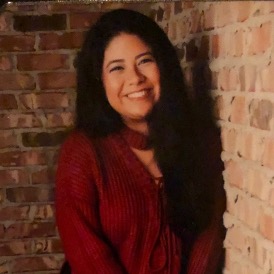A simple Google search of “He’s All That” yields homogeneous results: rows of film reviews that unabashedly trash the recent release. Although “He’s All That” intends to serve as a feel-good romantic comedy, it appears to have fallen short of its goal. Collectively, critics argue the movie lacks any sort of humor or charm whatsoever.
One analysis from The Washington Post’s Sonia Rao scrutinized the male lead, misanthrope/photographer Cameron Kweller.
“We are meant to find Cameron interesting simply because he shoots photographs on film, and to consider his joining Padgett in an uncomfortable karaoke rendition of ‘Teenage Dream’ as compelling a show of young love as belting ‘Can’t Take My Eyes Off You’ while skipping across a set of steps,” Rao argued.
Another notable critique hailed from Variety reporter Courtney Howard, who declared that the remake lacked “a more distinctive identity.”
The fact is that “He’s All That” failed to strike a chord with viewers, especially in comparison to its 1999 predecessor, “She’s All That.”
“She’s All That” centers on shallow jock Zack Siler, who makes a bet that he can turn “nerdy” art student Laney Boggs into prom queen. Like its gender-swapped successor, the 1999 motion picture included a “makeover” of the social pariahs. While analysts certainly did not love “She’s All That,” several praised the main actors’ performances (e.g., Rachael Leigh Cook and Matthew Lillard) and emphasized the film’s cultural significance.
Late film critic and journalist Gene Siskel wrote that “Rachael Leigh Cook, as Laney, the plain Jane object of the makeover, is forced to demonstrate the biggest emotional range as a character, and she is equal to the assignment.”
Anne Cohen from Refinery29 took a radical, contemporary approach to her exploration of “She’s All That,” insisting that the flick “is so rooted in our cultural understanding of teen movies that a world without it now seems unimaginable.”
“She’s All That” left quite a positive impression on viewers and a remarkable imprint on pop culture. Even though the exact same assessment cannot be made for the successor, “He’s All That” has already made an enormous splash worldwide.
“He’s All That” premiered in Hollywood, California, on Aug. 25 before debuting on Netflix two days later. It soon became the No. 1 film on the streaming service for the week. One actor who enjoyed the fruits of their labor was the lead actress and TikTok sensation Addison Rae.
Last week, Variety reported that Rae signed a multi-picture deal with Netflix. The streamer’s family film director, Naketha Mattocks, had nothing but positive things to say about the social media star.
“Addison Rae’s charm and promise is undeniable as evidenced by ‘He’s All That’ and her already passionate fan base,” Mattocks said. “We’re thrilled to be part of this next phase of her burgeoning career as an actress.”
Still, remember that the movie mentioned in Mattocks’ statement generated significant backlash (and continues to do so).
All of this considered, it still raises the question: Why did “He’s All That” become so popular? Did audiences possess a genuine interest in watching the motion picture that featured the ever-so-controversial Rae? Or did they venture into their viewing experience with the intention of “hate-watching”?
Due to Rae’s largely negative reputation and “He’s All That” sneak peeks, potential viewers wanted to see the final product; notably, young audiences wanted to see how badly Rae, an inexperienced actress, would flounder. These factors may have played a role in the popularity of “He’s All That.”
However, it appears as though certain viewers did not realize that their hate-watching had such negative consequences; therefore, they took to Twitter — as one always does — to voice their grievances.
In response to Film Updates’ tweet revealing that “He’s All That” debuted at No. 1 on Netflix US, one user wrote, “I did hate-watch the TikTok movie I fear but I had to confirm my thoughts…. I was correct.”
Although this more hostile demographic does not hold complete responsibility for the Netflix original’s achievement, they pressed play on “He’s All That” and watched the flick from beginning to end, even though they “hated” it. Evidently, they did not expect that their viewings would benefit the remake of the 1999 classic.
Quite frankly, hate-watching feels incredibly short-sighted and ignorant; at the end of the day, a view equals money for the actors and production crew involved with a project. Seriously, why would a “hater” waste their time studying a movie with a supposedly terrible screenplay and loathsome cast? Perhaps, they secretly enjoy their viewing experience and feebly disguise it as “uninteresting” to their peers — all to avoid humiliation.
For example, one television show with a sizeable number of hate-watchers is the CW’s “Riverdale.” Not everyone tunes in because they feel that the drama contains well-written storylines and acting performances — because it does not always showcase that. Instead, some audiences glimpse at the series because they simply want to criticize the (sometimes) bizarre, out-of-place plots.
At the same time, though, these viewers usually remain entertained by polarizing media like “Riverdale.” Consequently, such viewing cannot fall under the hate-watching umbrella — the prefix “hate” holds much importance here.
Due to the murky reputation associated with “Riverdale” — especially online — many feel too ashamed to recognize their fondness for the CW hit.
Another tweeter revealed that she felt embarrassed by her devotion to the show: “Riverdale: me and my [sister] hate-watch this show so im embarrassed to say i have favourites🤧 i have to say hermione, fred, alice and archie.”
In today’s world, viewers heavily gravitate toward “disastrous” media — whether it is “Riverdale” or “He’s All That” — and essentially depend on them for innumerable, silly reasons. However, this overreliance does nothing to strengthen the audience and everything to serve the industry’s upper echelon. Sometimes, people need to understand that it is okay to turn off the TV, shut down the laptop or change the channel.

















